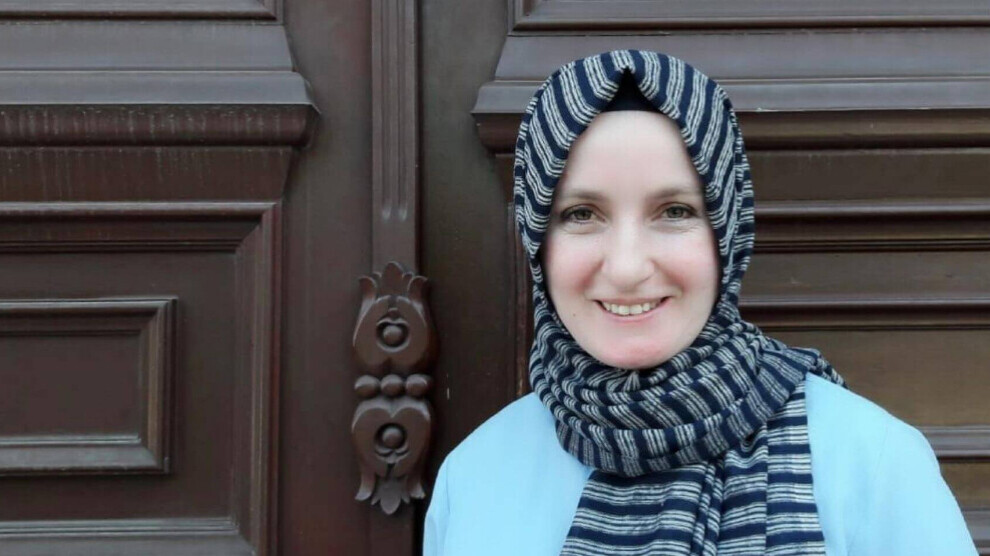Fatma Yavuz: It seems that every institution in Turkey works contrary to its mission
Author Fatma Yavuz said: "Hospitals produce diseases, courthouses produce oppression, and places of worship produce sin and polytheism."
Author Fatma Yavuz said: "Hospitals produce diseases, courthouses produce oppression, and places of worship produce sin and polytheism."

Author Fatma Yavuz said that the reason why religious communities in Turkey develop trade through religion is because the democratic legal system has not been established.
The increase in the economic activities of religious communities during the AKP government, their gaining an important place in the business world and politics, their use of religious values intertwined with commercial purposes, and data indicating that donations collected through foundations and associations are used for purposes other than intended are reflected as situations that question the reliability of religious structures.
Speaking to ANF, author Fatma Yavuz said that the function of religious communities and similar structures is to provide spiritual guidance to society, to help, and to spread moral values. Yavuz said: "Many religious communities in Turkey have deviated from these duties by getting involved in politics and self-interest. They have begun to degenerate by penetrating different areas of the state and society. These structures, because they are far from control and transparency, have become full of contradictions and open to abuse. Thus, they have seriously failed in the areas in which they are most ambitious, namely moral and spiritual values."
Giant empty packages
Noting that if democracy and the rule of law were established, congregations would not have the opportunity to behave like this, Fatma Yavuz said: "They would have taken their place in society as transparent and auditable structures that stayed in their own fields, doing what needed to be done. However, with the AKP government emptying almost all values, these structures have turned into giant, empty packages. They have become institutions that contradict their own values and failed in the areas they are most ambitious about. We think that we can easily solve this because we cannot analyze this correctly and so that people do not do such things."
When there is no democratic legal order
Fatma Yavuz said: "If the collected donations were spent in the right places, if they were sufficiently audited and if the necessary mechanisms were in place, we could not say the same thing. If we were in a democratic legal order, congregations would only operate in their own fields and become transparent and auditable structures. Thus, they existed in society only as structures that provided spiritual and social services. In an environment where the legal system did not function and there was no transparency and accountability, these structures turned into empty and gigantic packages, institutions that contradicted their own values."
Misperception and bad examples
Fatma Yavuz said that judgments about communities stem from the bad examples of the current ones, and added: "It is also a mistake to think that all communities and similar structures in Turkey are bad. The problem is not that all communities are harmful, but the fact that this perception has emerged because the current examples are bad. If communities had spent the donations they collected transparently and in the right places, and if these processes could be well supervised, a positive approach towards these structures would have developed in society. The vision created by the bad examples of communities in Turkey gave rise to the misconception that all these structures are actually problematic."
Even places of worship produce sin
Yavuz stated that almost every institution and everything in Turkey works in reverse. She said: "Hospitals produce diseases instead of health, courthouses produce oppression instead of justice, and places of worship produce sin and polytheism instead of spiritual peace. This situation is actually a result of Turkey’s general departure from a democratic legal order. These problems can be solved in a Turkey that has established the axis of democratic law. It is essential for a democratic legal order to be established so that communities are transparent and accountable, do not engage in illegal activities, and prevent them from gaining profit by establishing illegitimate relations with politics. In order for communities and other social structures in Turkey to be able to operate for the benefit of society and stay away from corruption, it is essential to build a democratic, transparent, and accountable system."